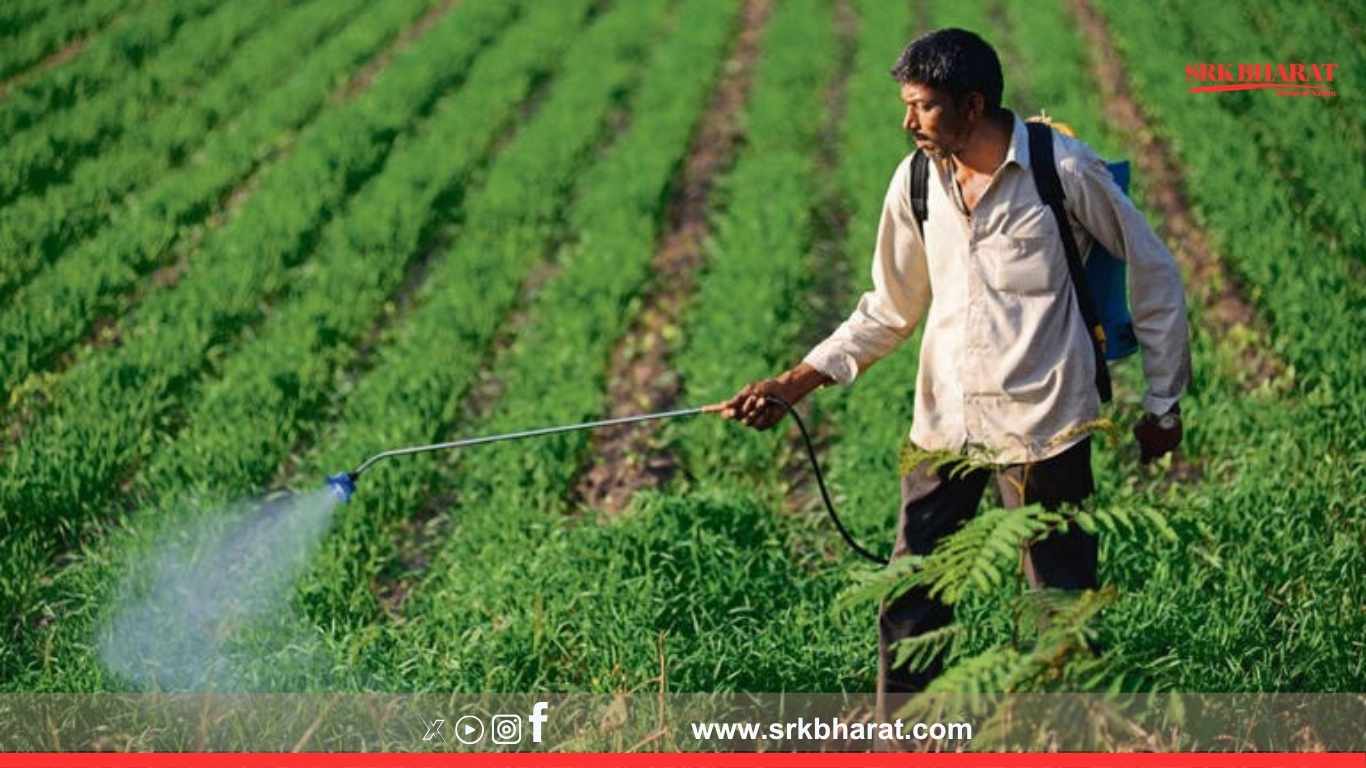India is set to introduce an AI-powered pest detection system to support its farmers in combating crop losses, Agriculture Secretary Manoj Ahuja announced on Tuesday. The initiative aims to leverage artificial intelligence and image recognition technologies for real-time pest monitoring and early intervention, ensuring improved yields and reduced pesticide dependency.
AI in Agriculture: A Policy Priority
Speaking at an agriculture technology conclave in New Delhi, Ahuja highlighted:
“AI-based pest detection is among the government’s key priorities to enhance crop productivity, reduce losses, and empower farmers with scientific decision support tools.”
The government is collaborating with Indian agri-tech startups, research institutions, and global technology companies to design scalable solutions tailored to local pest dynamics across India’s diverse agro-climatic zones.
Why AI-Based Pest Detection Matters
According to estimates by the Indian Council of Agricultural Research (ICAR):
- Annual crop losses due to pests and diseases range between 15-25%, amounting to over ₹50,000 crore.
- Excessive pesticide usage causes soil degradation, water contamination, and health hazards while increasing farm input costs.
AI-enabled pest monitoring will:
- Detect infestations early using image recognition, drone surveillance, and IoT sensors.
- Suggest targeted and minimal pesticide application.
- Alert farmers about emerging pest threats through mobile apps and extension networks.
How AI-Powered Pest Detection Systems Work
- Image Capture:
- Farmers or drones capture high-resolution images of crops.
- AI Analysis:
- Algorithms trained on pest image databases identify infestations, diseases, or nutrient deficiencies.
- Advisory Generation:
- The system provides instant recommendations on control measures, optimal sprays, or biological interventions.
- Continuous Learning:
- Machine learning models improve accuracy as data grows, adapting to region-specific pest profiles.
Key Pilot Projects Underway
| State | Implementing Agency | Focus Crop | Technology Used |
|---|---|---|---|
| Punjab | PAU + private AI firm | Cotton, paddy | AI pest image recognition, WhatsApp advisories |
| Maharashtra | ICAR + agri-tech startup | Soybean, cotton | Drone-based pest and disease mapping |
| Karnataka | University of Agricultural Sciences | Tomato, chilli | Mobile AI apps for pest identification |
(Compiled from Ministry of Agriculture pilot project briefings)
Private Sector Partnerships
The Ministry is in discussions with companies like:
- Microsoft India, which piloted AI pest detection for cotton in Telangana, achieving a 30% reduction in pesticide sprays.
- Google-backed agri-tech startups that use AI and satellite data to predict locust and stem borer attacks.
- CropIn and AgNext, Indian startups specialising in farm data analytics and AI-based quality assessment.
Challenges in Large-Scale Implementation
Despite promising pilots, experts caution about:
- Connectivity issues in remote villages, limiting real-time AI deployment.
- Data accuracy gaps, as AI models need region-specific pest images for reliable detection.
- Farmer digital literacy barriers, requiring intensive extension training.
Government’s Strategy to Address Challenges
- Building Regional Pest Image Libraries:
- Collaborating with ICAR institutes to build extensive pest and disease image datasets for different states.
- Offline Functionality:
- Ensuring AI apps work without internet, uploading data once connectivity resumes.
- Capacity Building:
- Training extension officers and progressive farmers as master trainers to promote adoption.
Expected Benefits for Farmers
| Benefit | Impact |
|---|---|
| Early pest detection | Prevents major crop damage and yield loss |
| Reduced pesticide usage | Lowers input cost and chemical residues in produce |
| Timely advisories | Enhances farmer confidence in scientific methods |
| Better marketability | Due to improved crop health and quality |
Expert Opinions
Dr. R.K. Sharma, Director, ICAR-Central Institute for Cotton Research, stated:
“AI pest detection has transformed cotton pest management in pilot villages. Wider adoption will make Indian agriculture more resilient, cost-effective, and globally competitive.”
Agricultural economist Prof. Seema Bhardwaj noted:
“Technologies like AI should be complemented by strong market linkages and input reforms for holistic agricultural transformation.”
Global Context: AI in Pest Management
Countries like China, Israel, and the US have pioneered AI for agriculture:
- China: Uses drone-mounted AI cameras for rice pest mapping.
- Israel: Deploys AI to detect insect infestations in greenhouses, reducing chemical usage by up to 50%.
- US: AI pest and disease detection tools integrated with autonomous farm robots for precision spraying.
Alignment with India’s Digital Agriculture Mission
The AI pest detection programme aligns with the government’s ₹11,040 crore Digital Agriculture Mission, which focuses on:
- Farm data aggregation and farmer registry.
- Smart advisory platforms using AI and analytics.
- Promoting agri-tech startups through regulatory and funding support.
What Farmers Say
In Maharashtra’s Wardha district, cotton farmer Ramesh Mahale shared his experience:
“Using the AI pest detection app helped me identify pink bollworm infestation early. I sprayed only two rows instead of the whole field, saving nearly ₹4,000 on pesticides.”
Way Forward
The Agriculture Ministry plans to:
- Roll out AI pest detection in 100 districts during the current fiscal year.
- Integrate the tool with Krishi Vigyan Kendras for on-ground support.
- Collaborate with state governments to include AI-based pest management in their crop protection programmes.
Conclusion
India’s AI-powered pest detection initiative represents a significant leap towards precision agriculture, sustainability, and farmer profitability. Effective implementation with robust infrastructure and farmer training will determine its success in transforming India’s fight against crop losses and achieving food security goals.
Disclaimer: This article is based on official statements by Agriculture Secretary Manoj Ahuja, Ministry briefings, and expert interviews. Readers are advised to follow government notifications for region-specific rollout updates.











